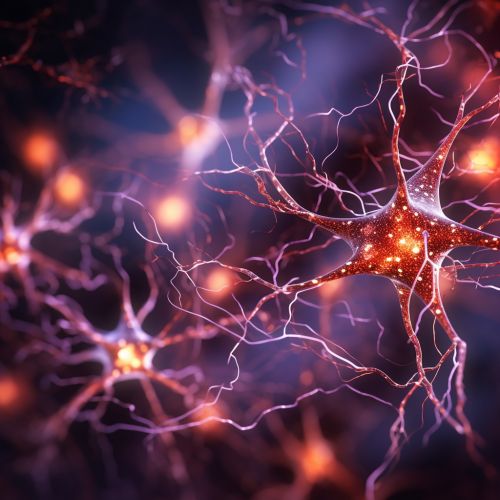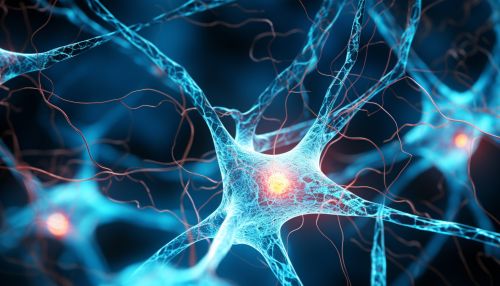Epigenetics in Neurodegenerative Diseases
Introduction
Epigenetic mechanisms play a crucial role in the regulation of gene expression in the human body. These mechanisms, which include DNA methylation, histone modifications, and non-coding RNAs, can influence the development and progression of various diseases, including neurodegenerative diseases. This article will delve into the intricate relationship between epigenetics and neurodegenerative diseases, providing a comprehensive overview of current research and understanding in this field.


Epigenetics: An Overview
Epigenetics refers to changes in gene expression that do not involve alterations to the underlying DNA sequence. These changes can be inherited through cell division and can be influenced by various environmental factors. The primary epigenetic mechanisms include DNA methylation, histone modifications, and the action of non-coding RNAs.
DNA Methylation
DNA methylation is a process by which methyl groups are added to the DNA molecule, typically at a cytosine or adenine DNA base. This modification can change the activity of a DNA segment without changing the sequence. DNA methylation is a crucial part of normal development and plays a key role in processes such as X-inactivation, genomic imprinting, and aging.
Histone Modifications
Histone modifications are another essential epigenetic mechanism. Histones are proteins that help package DNA into a compact, efficient form. They can be modified by the addition or removal of various functional groups, including methyl, acetyl, and phosphate groups. These modifications can influence gene expression by altering chromatin structure or recruiting histone modifiers.
Non-Coding RNAs
Non-coding RNAs (ncRNAs) are RNA molecules that do not code for proteins but play a crucial role in regulating gene expression. There are several types of ncRNAs, including microRNAs (miRNAs), small interfering RNAs (siRNAs), and long non-coding RNAs (lncRNAs). These molecules can influence gene expression through various mechanisms, such as RNA interference (RNAi) and chromatin remodeling.
Neurodegenerative Diseases: An Overview
Neurodegenerative diseases are a heterogeneous group of disorders characterized by the progressive degeneration of the structure and function of the nervous system. They are often sporadic, but some forms can be inherited. The most common neurodegenerative diseases include Alzheimer's disease, Parkinson's disease, Huntington's disease, and amyotrophic lateral sclerosis (ALS).
Alzheimer's Disease
Alzheimer's disease is the most common form of dementia, characterized by the accumulation of beta-amyloid plaques and tau tangles in the brain. These pathological features lead to neuronal death and cognitive decline.
Parkinson's Disease
Parkinson's disease is a neurodegenerative disorder characterized by the loss of dopamine-producing neurons in the substantia nigra, a region of the brain involved in regulating movement. The primary symptoms of Parkinson's disease include tremors, rigidity, and bradykinesia (slowness of movement).
Huntington's Disease
Huntington's disease is a genetic disorder caused by an expanded CAG repeat in the HTT gene. This expansion leads to the production of a mutant huntingtin protein, which aggregates in neurons and leads to neuronal death.
Amyotrophic Lateral Sclerosis
Amyotrophic lateral sclerosis (ALS), also known as Lou Gehrig's disease, is a neurodegenerative disorder characterized by the loss of motor neurons in the brain and spinal cord. This loss leads to muscle weakness and atrophy, and eventually, respiratory failure.
Epigenetics in Neurodegenerative Diseases
Recent research has highlighted the role of epigenetic modifications in the pathogenesis of neurodegenerative diseases. These modifications can influence disease onset, progression, and severity by altering gene expression in neurons and other cell types.
Epigenetics in Alzheimer's Disease
In Alzheimer's disease, abnormal DNA methylation patterns have been observed in post-mortem brain samples. These changes are associated with the dysregulation of various genes involved in neuronal function and survival. Additionally, alterations in histone acetylation and methylation have been linked to the disease. For example, reduced levels of acetylated histone H3 and H4 have been observed in the brains of Alzheimer's patients, which may contribute to the downregulation of genes involved in synaptic plasticity and memory formation.
Epigenetics in Parkinson's Disease
In Parkinson's disease, alterations in DNA methylation have been observed in the substantia nigra of patients. These changes are associated with the dysregulation of genes involved in dopamine production and oxidative stress response. Additionally, alterations in histone acetylation and methylation have been linked to the disease. For example, increased levels of histone H3 lysine 9 (H3K9) methylation have been observed in the brains of Parkinson's patients, which may contribute to the downregulation of genes involved in neuronal survival.
Epigenetics in Huntington's Disease
In Huntington's disease, the expanded CAG repeat in the HTT gene can lead to abnormal DNA methylation and histone modifications. These changes can influence the expression of the mutant huntingtin protein and other genes involved in neuronal function. Additionally, alterations in non-coding RNAs have been observed in Huntington's disease. For example, changes in the levels of certain miRNAs have been linked to the disease, which may contribute to the dysregulation of genes involved in neuronal survival and function.
Epigenetics in Amyotrophic Lateral Sclerosis
In ALS, alterations in DNA methylation and histone modifications have been observed in motor neurons. These changes are associated with the dysregulation of genes involved in neuronal function and survival. Additionally, alterations in non-coding RNAs have been observed in ALS. For example, changes in the levels of certain miRNAs and lncRNAs have been linked to the disease, which may contribute to the dysregulation of genes involved in neuronal survival and function.
Future Directions and Therapeutic Implications
Understanding the role of epigenetics in neurodegenerative diseases could open new avenues for therapeutic intervention. For example, drugs that modulate DNA methylation or histone modifications could potentially be used to alter disease progression. Additionally, non-coding RNAs could be targeted for therapeutic purposes. However, much more research is needed to fully understand the complex interplay between epigenetics and neurodegenerative diseases and to translate these findings into effective treatments.
